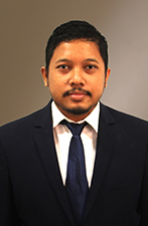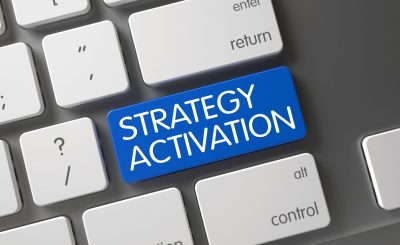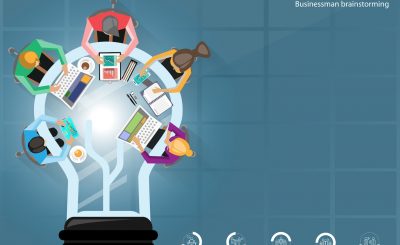The era of globalization is an inevitable reality. Technological advancements have accelerated the globalization process, propelling the growth of cross-national economies. If harnessed properly, globalization could propel a nation.
Globalization, however, is not without its weaknesses and limitations. Intense interactions among nations, which have been closely connected, pose challenges for each of the countries. The impact of globalization for developing countries has strongly been influenced by the degree in which law enforcement and democracy are implemented in these countries. Weak law enforcement hinders steps to implement democracy, while high levels of criminal behavior adversely impacts a nation’s effort to develop its human capital. Without responsive, corrective actions, globalization could in fact erode the Human Development Index (HDI) in such a nation.
The situation demonstrates the vital role of the readiness of a nation’s human capital to face globalization. One of the biggest obstacles hampering a nation’s human capital development is the equality factor, which has become a serious problem in Indonesia. Because of the uneven distribution of resources, many Indonesians suffer from low self-esteem and believe they are not equal to people from other countries. This sense of low self-esteem could inhibit Indonesians’ high potential as human resources, causing them to be defeated even before going into battle.
Overcoming an inequality of resources requires the exponential acceleration of a nation’s competitive advantage, which needs to be built at the same level as other nations. The primary element to fix in order to boost the competitive advantage of a nation’s human resources is the confidence to feel equal with people from other countries. A nation’s human resources must be courageous enough to run in the same trajectory with that of people from other countries.
Western mentality, eastern heart
A nation’s competitive advantage should be framed with a tough fighting spirit. In order to get that fighting spirit, a nation’s human resources must continuously renew their sense of self-confidence. This can be accomplished with high levels of discipline and focus, accompanied by superior global knowledge.
In addition to a fighting spirit, tolerance of ambiguity should also be incorporated into one’s daily habits in a global world where we deal with abundant diversity, where waves of change should be dealt with positively. Therefore, one’s adaptability to differences must be optimized in order to process facts into useful knowledge.
As a comparison, the Western mentality has been put to the test in numerous fields. It is not rare for us to find people aged 25 or younger with doctorate degrees. We could also frequently discover, in various fields, achievements that have been crafted from a young age.
Despite their high competitive advantage, we still have our own competitive gap to fill. Even though the world has been made flat through communication, cultural characteristics have made each nation into its own unique entity. It is hard to compete with the uniqueness of a culture. Take a look at Bali. With its strong Hindu culture, it is able to attract tourists to enjoy the island’s beauty while still respecting the island’s traditional customs.
Therefore, despite the more intensified global economic competition, globalization still provides room for each nation to boost its global competitiveness. The competitiveness for human capital must be holistic instead of just relying upon technical skills. A world-class spirit must be developed while still deeply rooted in local wisdom, so that Indonesians can possess a Western mentality while still embodying the humility of Eastern people.
Collaborating to create added value
Boosting one’s competitiveness definitely requires real actions, like forming effective and efficient partnerships with parties that could boost the quality of human capital in a significant manner.
One such partnership can be done through a mutual learning processes, which can fill in gaps and complement the aspects that each party lacks, building knowledge upon other people’s experiences. These collective learning experiences could be done across different institutions, regions and countries. The existence of the internet has also ensured that the lifelong learning process to boost the quality of human capital can be done without being hampered by time and space constrains.
Collective learning could also stimulate cross-national innovations. For instance, if Indonesian and European students learn together, they could synchronize the technological advances of Europe with Indonesia’s village culture to create a village with a sovereign water source. This is how collaboration could create added value.
Building globally competitive human capital
The creation of productive collaborations requires synchronized actions taking care of businesses, from upstream right down to downstream elements. Higher education as the final downstream portion of formal education must be able to be the holistic peak that equips students with practical concepts and a comprehensive understanding of real issues present in the field.
Complains about the weak competence of university graduates when they enter the workforce need to be overcome with a learning model that emphasizes practical experiences. That alone is not enough; curricula need to be designed in a dynamic manner to adjust with constant changes in the environment. Teaching staffs are also continuously demanded to be able to extract their intellectual capabilities through competitive research studies on a global level.
Forming alliances with other educational institutions is not a taboo. Global learning concepts now require new waves of knowledge contributed by developing countries. Therefore, it is not rare for prestigious universities in Western countries to form partnerships with highly reputable universities in developing countries to strengthen their global competitiveness.
This is actually the positive effect of globalization. With the spirit to strengthen a nation’s human capital, universities as spearheads of national education must serve as positive role models for the formation of value-added partnerships. Hopefully, through these international educational collaborations, we can create capable leaders who are spiritually mature, competent in their professional practices and competitive on a global level.
If these partnerships could be formed in a consistent manner, then we could put aside fears of the negative impacts of globalization on our human capital. The fear of losing one’s job to foreign talents has become even more irrelevant than ever, when a nation’s human capital could be masters in their own country and highly competent guest on foreign soil.
Therefore, the courage to run in the same trajectory now means that Indonesia is ready to share the stage with other nations, even developed countries. We must be able to produce human capital with equal quality, capable of producing added value for the benefit of not just Indonesia, but the whole world.
Source: The Jakarta Post Newspaper (Tuesday, June 13 2017)









